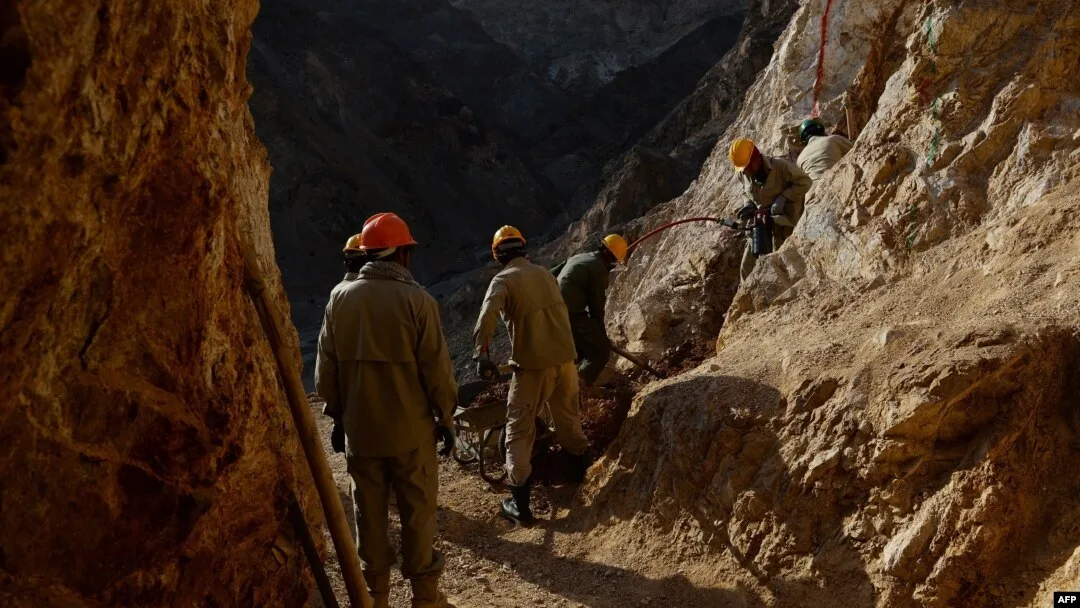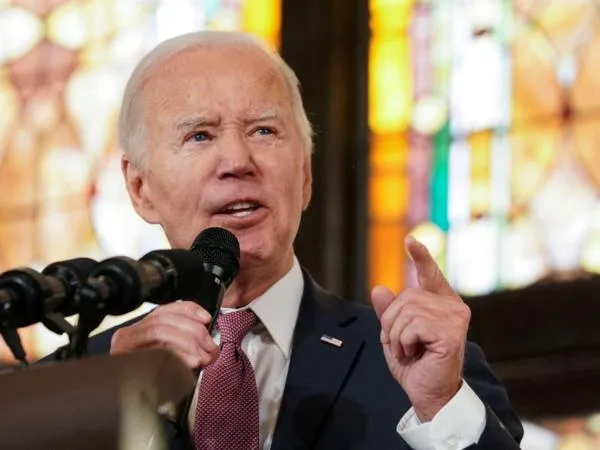Introduction
The Taliban’s seizure of power in Afghanistan has brought the country’s vast mineral wealth into sharp focus. Estimated to be worth trillions of dollars, these untapped resources, including lithium and rare earth elements, hold both promise and peril. While potentially providing much-needed revenue streams, the situation raises concerns about the ‘resource curse,’ where mineral wealth fuels corruption and conflict instead of development. The international community faces complex ethical and geopolitical challenges in navigating the Taliban’s control, ensuring responsible extraction, and prioritizing the well-being of the Afghan people.
Key Points
1. Afghanistan’s Mineral Wealth
The Taliban’s control of Afghanistan has opened up access to vast, untapped mineral reserves estimated to be worth trillions of dollars. These resources include lithium, copper, iron ore, and rare earth elements crucial for renewable energy technologies and electronics.
2. Potential Economic Benefits
While offering potential revenue streams, experts warn of the ‘resource curse,’ where mineral wealth fuels corruption and conflict instead of development.
3. Ethical and Logistical Challenges
International companies face ethical and logistical challenges in navigating the Taliban’s control and the country’s instability. The situation raises questions about responsible mineral extraction, human rights, and the potential geopolitical implications of Afghanistan’s mineral wealth.
Insights
1. The ‘Resource Curse’ Phenomenon
The ‘resource curse’ describes how countries rich in natural resources can experience stagnant growth or even economic decline due to mismanagement, corruption, and conflict. Afghanistan’s political instability and governance issues make it particularly vulnerable to this phenomenon.
2. Ethical Dilemmas for International Companies
Companies looking to exploit Afghanistan’s mineral wealth must navigate complex ethical landscapes, balancing potential profits with the risk of funding a regime with a controversial human rights record.
3. Geopolitical Implications
Control over Afghanistan’s minerals has significant geopolitical implications, influencing global power dynamics as nations vie for access to these critical resources.
Afghanistan’s Mineral Wealth
Afghanistan is home to a wealth of mineral resources, including lithium, copper, iron ore, and rare earth elements. These materials are essential for various industries, particularly renewable energy technologies and electronics. Estimates suggest that Afghanistan’s untapped mineral wealth could be worth trillions of dollars, making it one of the most resource-rich countries in the region. However, the full potential of these resources has yet to be realized due to decades of conflict and political instability.
Potential Economic Benefits
The exploitation of Afghanistan’s mineral resources could provide significant economic benefits. Potential revenue streams from mining operations could fund infrastructure projects, healthcare, education, and other critical areas of development. Properly managed, this mineral wealth could transform Afghanistan’s economy and improve the living standards of its people. However, realizing these benefits requires a stable political environment and effective governance to ensure that revenues are used for the public good.
The ‘Resource Curse’ Phenomenon
Despite the potential benefits, there is a well-documented risk known as the ‘resource curse.’ This phenomenon occurs when countries with abundant natural resources fail to achieve sustainable economic growth due to corruption, mismanagement, and conflict. Examples include several African nations where mineral wealth has led to civil wars and economic stagnation. Afghanistan, with its fragile political landscape and history of corruption, faces a significant risk of falling into this trap.
Ethical and Logistical Challenges
International companies interested in Afghanistan’s minerals face numerous challenges. Ethically, these companies must consider the implications of doing business with the Taliban, a regime with a controversial human rights record. Logistically, operating in a conflict zone poses significant risks, including security threats and the lack of infrastructure. These challenges complicate efforts to exploit Afghanistan’s mineral wealth responsibly and sustainably.
Geopolitical Implications
The control of Afghanistan’s mineral resources has far-reaching geopolitical implications. Major powers, including China, Russia, and the United States, have shown interest in these resources, each seeking to secure access for their industries. The strategic importance of these minerals, particularly rare earth elements essential for high-tech manufacturing and defense industries, adds another layer of complexity to the situation. How these resources are managed will influence global power dynamics and international relations.
Responsible Mineral Extraction
Ensuring responsible mineral extraction is crucial to avoid exacerbating Afghanistan’s problems. Sustainable practices and ethical sourcing models must be prioritized to minimize environmental damage and human rights abuses. International frameworks and regulations can guide these efforts, ensuring that mining operations benefit the Afghan people without contributing to conflict or corruption. Examples from other resource-rich countries can offer valuable lessons in implementing best practices.
Impact on Afghan Society
The exploitation of mineral resources has the potential to significantly impact Afghan society. If managed well, it could lead to improved infrastructure, healthcare, education, and overall economic development. However, there is also a risk that the wealth generated could exacerbate existing inequalities, fuel corruption, and lead to further conflict. The international community must work with Afghan stakeholders to ensure that the benefits of mineral extraction are equitably distributed and that the rights of all citizens are protected.
International Response
The international community’s response to the Taliban’s control over Afghanistan’s minerals will be critical. Policies from key nations and the role of multilateral organizations will shape how these resources are managed. Diplomatic efforts, sanctions, and support for responsible extraction practices will influence the outcome. Ensuring that the international response prioritizes the well-being of the Afghan people and promotes sustainable development is essential.
The Way Forward
Navigating the challenges and opportunities presented by Afghanistan’s mineral wealth requires a balanced approach. Exploitation must be paired with development, ensuring that revenues support infrastructure, healthcare, and education. The international community must advocate for responsible extraction practices and work to mitigate the risks of the ‘resource curse.’ Prioritizing the voices of the Afghan people and ensuring that they benefit from their country’s resources will be key to achieving sustainable peace and prosperity.
Conclusion
The Taliban’s control over Afghanistan’s mineral wealth poses significant challenges and opportunities. While the potential economic benefits are substantial, the risks of corruption, conflict, and exploitation are equally significant. The international community must navigate these complexities with a focus on ethical practices, sustainable development, and the well-being of the Afghan people. Only by balancing exploitation with responsible management can Afghanistan’s mineral wealth become an economic lifeline rather than a resource curse.
Frequently Asked Questions (FAQs)
What minerals does Afghanistan possess?
Afghanistan has vast reserves of minerals, including lithium, copper, iron ore, and rare earth elements, essential for various industries, especially renewable energy and electronics.
What is the ‘resource curse’?
The ‘resource curse’ is a phenomenon where countries with abundant natural resources experience economic stagnation, corruption, and conflict instead of sustainable growth due to mismanagement and exploitation.
What challenges do international companies face in Afghanistan?
International companies face ethical dilemmas and logistical challenges, including navigating the Taliban’s control, ensuring security in a conflict zone, and adhering to responsible extraction practices.
How could Afghanistan’s mineral wealth impact its economy?
If managed well, Afghanistan’s mineral wealth could provide significant revenue streams, funding infrastructure, healthcare, and education, and transforming the economy. However, mismanagement could lead to increased corruption and conflict.
What are the geopolitical implications of Afghanistan’s mineral resources?
Control over Afghanistan’s minerals has significant geopolitical implications, with major powers vying for access. These resources are strategically important for industries like high-tech manufacturing and defense.
How can responsible mineral extraction be ensured?
Responsible mineral extraction can be ensured by following sustainable practices, adhering to international frameworks, and implementing ethical sourcing models to minimize environmental damage and human rights abuses.
External Sources
============================================



